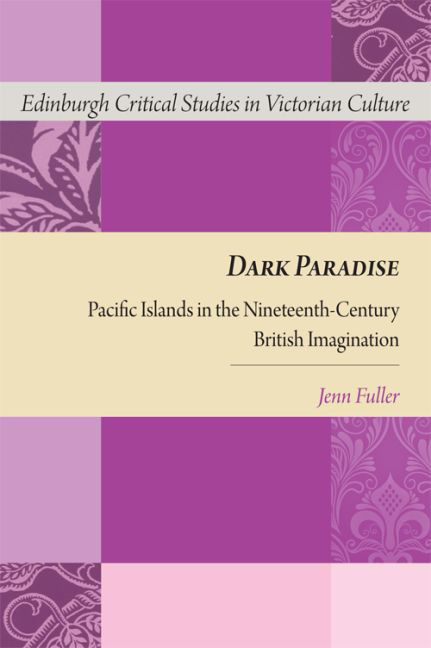Book contents
- Frontmatter
- Contents
- Series Editor's Preface
- Acknowledgements
- Introduction
- 1 Moving Missions and Novel Settlements: Early British Pacific Propaganda (1796–1866)
- 2 Adventures in the Pacific: The Influence of Trade on the South Seas Novel
- 3 Islands of Discovery: Scientific Curiosity in the Works of Darwin, Huxley and Wells
- 4 The Price of Paradise: Robert Louis Stevenson, Joseph Conrad and British Expansion in the Pacific
- 5 The Islanders Speak: Pacific Reflections in the British Press
- Bibliography
- Index
3 - Islands of Discovery: Scientific Curiosity in the Works of Darwin, Huxley and Wells
Published online by Cambridge University Press: 12 September 2017
- Frontmatter
- Contents
- Series Editor's Preface
- Acknowledgements
- Introduction
- 1 Moving Missions and Novel Settlements: Early British Pacific Propaganda (1796–1866)
- 2 Adventures in the Pacific: The Influence of Trade on the South Seas Novel
- 3 Islands of Discovery: Scientific Curiosity in the Works of Darwin, Huxley and Wells
- 4 The Price of Paradise: Robert Louis Stevenson, Joseph Conrad and British Expansion in the Pacific
- 5 The Islanders Speak: Pacific Reflections in the British Press
- Bibliography
- Index
Summary
Introduction
One of the most influential ideas of the nineteenth century began not through a study of apes, but of plankton. Before Charles Darwin formulated his landmark theories on the evolution of species, he was nothing more than a curious young companion collecting marine life aboard the HMS Beagle. One of his greatest supporters, naturalist and philosopher T. H. Huxley, had equally humble beginnings working as a surgeon's mate on the HMS Rattlesnake, largely to pay off his debts. Both men set off into the vast waters of the Pacific with only modest goals, having little idea that the ideas they would develop on their journeys among the islands would challenge the very basis of Victorian science and religion. It was these journeys that helped to inspire the vast genre of ‘science fiction’ which took the theories developed on these early voyages and transformed them into hopeful or horrifying views of the future. For novelist H. G. Wells, the scientific Pacific of Darwin and Huxley was not a place of discovery, but of nightmare.
Earlier struggles in the Pacific occurred mainly between missionaries who sought to convert the islanders and traders who sought to profit from them. By mid-century, the British reading public had access to accounts from both groups and demand grew for more tales of islands and islanders. Yet a subset of the English population found depictions of new flora and fauna more than a passing amusement for a dull evening. Victorian naturalists began to conceive of the Pacific as an encouraging locus of possibility for new scientific discovery. The Royal Navy proved invaluable as it sent a number of surveying expeditions between 1820 and 1860 to explore various Pacific islands and all carried naturalists.
Charles Darwin and Thomas Henry Huxley both joined expeditions to the newly discovered islands and their findings would permanently change the face of Victorian society. While the scientific texts produced by both men have been studied extensively by a variety of critical fields, their travel narratives have received far less attention, especially as Pacific narratives.
- Type
- Chapter
- Information
- Dark ParadisePacific Islands in the Nineteenth-Century British Imagination, pp. 85 - 110Publisher: Edinburgh University PressPrint publication year: 2016



